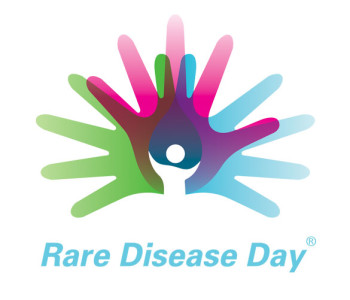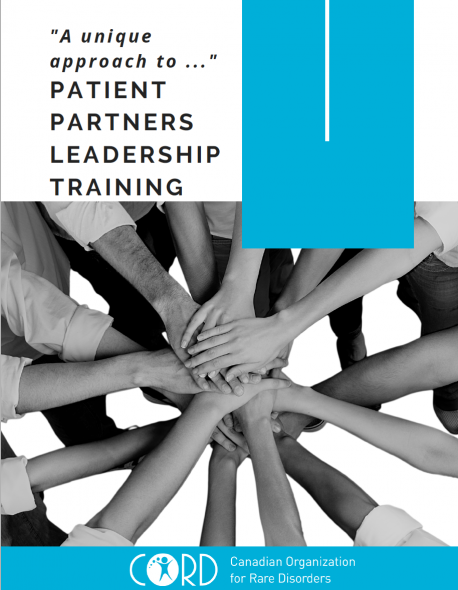We believe that now is the time to act to provide hope and treatment to Canadians and their families who are impacted by a rare disease.
Right now, only 60% of treatments for rare disorders make it into Canada and most get approved up to six years later than in the USA and Europe.
People with rare disorders in Canada are missing out on treatments that could save or significantly improve their lives. This needs to change.
The Canadian Organization for Rare Disorders (CORD) has released Canada’s Rare Disease Strategy, developed with experts from every sector. The Strategy details the extraordinary burden faced by Canadian families with rare illnesses. Challenges include misdiagnosis, unnecessary surgeries, social isolation, financial hardship, lack of treatment options and early death. These are the same challenges faced by Canadians with “non-rare” conditions, but the impact is often much more severe.
Why do we need Canada’s Rare Disease Strategy?
We believe that now is the time to act to provide hope and treatment to Canadians and their families who are impacted by a rare disease. Right now, the approach to rare diseases is fragmented across the country and this means Canadian families with rare illnesses are facing extraordinary challenges. These include misdiagnosis, unnecessary surgeries, social isolation, financial hardship, lack of treatment options and early death. These are the same challenges faced by Canadians with “non-rare” conditions but the impact is often much more severe.
About 1 in 12 Canadians, two-thirds of them children, are affected by a rare disease. But because each specific rare disease affects only a small number of individuals, scientific understanding and clinical expertise may be limited and fragmented across the country. We are asking that patients with rare diseases get the same kind of care and consideration as those with more common illnesses
Publications and Newsletters
- $1-billion for development national strategy for high-cost drugs for rare diseases. 2019 Budget Related to National Pharmacare
- Update on Treatment for Cystinosis in Canada WebEx Recording – EN & FR (June 2018)
- CORD joins MIT NEWDIGS consortium to accelerate biomedical innovation (March 2017)
- Consensus Framework for Ethical Collaboration (November 2016)
- Market Wired – Exploring the Impact of Canada’s Healthcare Research Footprint on Rare Diseases (December 4, 2015)
- CORD Assuring Affordability and Sustainable of Access to Drugs for Rare Diseases: Key Points (June 25, 2015)
- Press Release (Video) on Canada’s Rare Disease Strategy (May 25, 2015)
- Group releases strategy to help Canadians with rare diseases get care (May 25, 2015)
- Photo Album from Canada’s Rare Disease Strategy Launch
- CORD Patient Survey Summary (March 2015)
- CORD Patient Survey Data Overview (March 2015)
- Rare Disease Newspaper Insert (March 2015)
- CORD’s Rare Disease Report (March 2014)
- National Post – Canada Needs a National Strategy for Rare Diseases (June 2014)
- Rare Disease Newspaper Insert (March 2014)
- CORD’s Position Paper on Canada’s Orphan Drug Policy
Only 60% of treatments for rare disorders make it into Canada and most get approved up to six years later than in the USA
Strategy
About 1 in 12 Canadians, two-thirds of them children, are affected by a rare disorder. But because each disease affects only a small number of individuals, understanding and expertise may be limited and fragmented across the country. The Strategy proposes a five-point action plan that will address unnecessary delays in testing, wrong diagnoses and missed opportunities to treat.
1. Improving early detection and prevention,
2. Providing timely, equitable and evidence-informed care,
3. Enhancing community support,
4. Providing sustainable access to promising therapies and
5. Promoting innovative research
-
- FAQs: Everything you Want to Know about Canada’s Rare Disease Strategy
- Canada’s Rare Disease Strategy (EN)
- Canada’s Rare Disease Strategy Executive Summary (EN)
- Canada’s Rare Disease Strategy (FR)
- Canada’s Rare Disease Strategy Executive Summary (FR)
- Initial Draft Discussion Document for A Canadian Orphan Drug Regulatory Framework (Dec 2012)
Access
With regard to the cost of orphan drugs, it is important to remember that the only acceptable solutions are those that assure rare disease patients get access to the right drugs in a timely fashion.
CORD believes there are workable solutions. We have consistently called for affordable and sustainable access to rare disease drugs, recognizing the small patient population, the lack of effective alternative therapies, and the overall budget impact as well as per-patient cost.
CORD has (repeatedly) proposed a responsible “managed access” pathway, starting only those patients who meet “evidence-informed” start criteria and maintaining those who continue to meet “treatment milestones” or show net benefits. This approach has been used in Canada for rare and common drugs and is increasingly used in the European Union. Health Ministers have not agreed to meet with CORD and the patient community.
- CORD Assuring Affordability and Sustainable Access to Drugs for Rare Diseases: Key Points
- Press Release – CORD Urges Ministers of Health to Adopt Proven Model for Improved Access to Treatments for Rare Disorders
- EMA EUNETHTA 3 year Work 2013-15
- Summary of the Summit on Access to Drugs for Rare Diseases in Canada
- An Open Letter to Canada’s Health Ministers: Rare Disease Drugs
- Patient Engagement in Canada’s Orphan Drug Policy
Newborn Screening in Canada Status Report
CORD Letter of Recommendations on Newborn Screening Program Oct 2015
CORD Submission on Newborn Screening Program Sep 2015
Screening
- Becoming an Empowered Patient: A Toolkit for the Undiagnosed
- The Globe and Mail: Babies deserve better than Canada’s lamentable screening record
- The Globe and Mail: Canada has no national standard for newborn screening. Here’s why it should
- The Globe and Mail: Newborn screening: a resounding failure in Canada
Diagnosis
- LifeLabs makes genetic testing more accessible to Canadians with opening of new genetics laboratory in Toronto (6/24/2015)
- Genome British Columbia : Finding of Rare Disease Genes in Canada (FORGE Canada)
- The Globe and Mail: Canadian team finds root causes for 146 rare childhood diseases
- Phen-Gen: combining phenotype and genotype to analyze rare disorders : Nature Methods : Nature Publishing Group
- What Does the Future Hold? Solvi ng the Mysteries of Rare Diseases – Show me the Evidence (Fall 2013, Volume 2, Issue 1) – CIHR

Rare Disease Ambassadors
Rare Disease Ambassadors are a team of individuals, caregivers or patients who serve as spokespersons on behalf of the Canadian Organization for Rare Disorders (CORD) and Canada’s Rare Disease Strategy.
As an Ambassador, you will be asked to share your story, help promote the Strategy, participate in awareness events, and respond to relevant media inquiries. We will be training more Ambassador’s at future training events, if you are interested please contact us.
Ambassador Resources
Patient Partners Leadership Training
Who? Patient Advocates and Patient Partner Leaders from industry and other sectors who are interested in engaging as equal partners in exploration, discovery, and creation of roles as leaders in all phases of the drug lifecycle. Limited to 30 participants.
What? This program will enhance the capabilities of patients, patient advocates, and various stakeholder groups that are involved in drug development and access to partner effectively throughout all phases of the drug lifecycle from drug development to real-world management.
Where? Virtual, 2-hour live sessions (bi-weekly) with interactive small group capabilities that will include structured opportunities comprised of expert presentations from multiple sectors and post-session discussions and written assignments.
Why? Partnering with patients has transformed how drugs are discovered, developed, and made available. We have created a structured program with interactive opportunities, expert presentations, panel discussions, case studies, simulations, and deliberate dialogues. Patient advocates and other stakeholders will engage as equal partners in exploration, discovery, and creation of roles as leaders in a variety of patient partner situations.
When? From September 18, 2020 (includes a year-end holiday break) to February 5, 2021
For more information: Patient Partners Leadership Training Overview
Registration: Spots are limited and will be accepted to ensure a variety of affiliations and perspectives. To register, please submit an application through this link.
Rare Disease Day is to raise awareness amongst the general public and decision makers about rare diseases and their impact on patients' lives.

Rare Disease Day 2023
Rare Disease Day Conference & Cocktail Reception
March 28 – 29, 2023
Ottawa Marriott, 100 Kent Street, Ottawa
Conference Outline
Rare Disease Day 2023 Breakfast Reception at Queen’s Park
Registration
Monuments being lit up in Canada on Feb 28, 2023, in honour of Rare Disease Day are:
- Calgary Tower
- Toronto CN Tower
- Niagara Falls
- Edmonton High Level Bridge
Rare Disease Day 2022
Rare Disease Day Webinar, Feb 24, 2022
Monuments being lit up in Canada on Feb 28, 2022, in honour of Rare Disease Day are:
- Brampton Clock Tower
- Burlington Brant Street Pier
- Calgary Tower
- Toronto CN Tower
- Welland Bridge
- Winnipeg Sign by the Forks
Rare Disease Day 2021
Rare Disease Day 2021 Conference, March 9 -10, 2021
Final Agenda
Video Day 1
Video Day 2
Light up a Monument
Monuments being lit up in Canada on Feb 28, 2021, in honour of Rare Disease Day are:
- BC place stadium and Olympic Cauldron
- Calgary Tower
- Toronto CN Tower
- Edmonton High Level Bridge
Tag us on social media @raredisorders with your photos of the monuments.
Rare Disease Day 2020
MPP Breakfast at Queen’s Park, March 4, 2020 (Queen’s Park, Toronto)
Rare Disease Day 2020 Conference, March 9 -10, 2020 (Delta Hotels Ottawa City Centre)
Agenda
Speaker Bios
Conference Slides
Annual Rare Disease Day Gala, March 9 (Delta Hotels Ottawa City Centre)
Rare Disease Day 2020 Award Winners
Photo Album
Rare Disease Day 2019
Awards Gala, May 10, 2019 (Sheraton Centre Toronto Hotel)
Slideshow
Photo Album
MPP Breakfast at Queen’s Park, February 28, 2019 (Queen’s Park, Toronto)
Photo Album
Rare Disease Day At Parliament Hill, March 28, 2019 (Parliament Hill, Ottawa)
Photo Album
Rare Disease Day 2018
Action Day At Parliament Hill, March 20, 2018 (Parliament Hill, Ottawa)
Action Day Photo Album
Rare Disease Day Conference
Date: March 21 – 22, 2018
Location: Delta Hotels Ottawa City Centre
Final Agenda
Conference Photo Album Part 1
Conference Photo Album Part 2
Awards Gala, March 21, 2018 (Delta Hotels Ottawa City Centre)
Rare Disease Day Gala 2018 Photo Album
MPP Breakfast at Queen’s Park
Date: February 28, 2018
Location: Queen’s Park, Toronto
Rare Disease Day 2017
Conference: March 30 – 31, 2017
Final Agenda
Conference Slides
Awards Gala: March 30, 2017 (Sheraton Vancouver Wall Centre)
Rare Disease Day Gala 2017 Photo Album
Wake UP TO Rare Disease Day in Ontario!
Date: February 28, 2017
Location: Queen’s Park, Toronto
Invitation
Rare Disease Day Event Ideas
Rare Disease Day 2016
Conference: March 9 – 10, 2016
Location: Ottawa Sheraton
Agenda
Conference Slides
Gala: March 10, 2016 (Sheraton Ottawa)
Rare Disease Day Gala 2016 Photo Album
We are pleased to confirm that the CN Tower will be lit Light Blue on February 28, 2016 in recognition of International Rare Disease Day
Rare Disease Day 2015
Conference: Strategy, Research Updates, Training
March 5 – 7, 2015, Toronto, Ontario
Rarity Awards Dinner Gala: Honourary Gala Chair and Keynote Speaker, The Honourable James Moore, Minister of Industry

Rare Disease Day takes place on the last day of February each year.
The main objective of Rare Disease Day is to raise awareness amongst the general public and decision-makers about rare diseases and their impact on patients’ lives.
The campaign targets primarily the general public and also seeks to raise awareness amongst policy makers, public authorities, industry representatives, researchers, health professionals and anyone who has a genuine interest in rare diseases.
Since Rare Disease Day was first launched by EURORDIS and its Council of National Alliances in 2008, thousands of events have taken place throughout the world reaching hundreds of thousands of people and resulting in a great deal of media coverage.
The political momentum resulting from Rare Disease Day also serves advocacy purposes. It has notably contributed to the advancement of national plans and policies for rare diseases in a number of countries.
Even though the campaign started as a European event, it has progressively become a world phenomenon, with the USA joining in 2009, and participation in a record-breaking 87 countries around the world in 2015. We hope many more will join in 2016. Some countries have decided to raise rare disease awareness further, for example, Spain declared 2013 as the National Year for Rare Diseases.
Our objective is for the World Health Organization to recognise the last day of February as the official Rare Disease Day and to raise increasing awareness for Rare Diseases worldwide.

